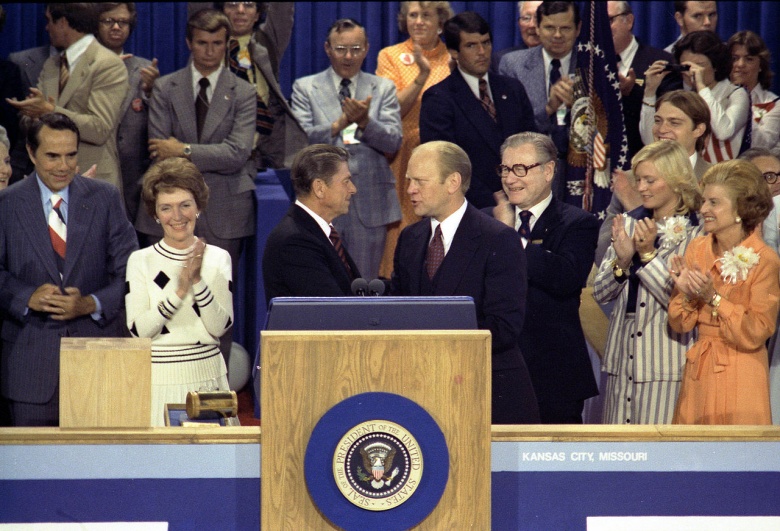The strange presidential career of Ronald Reagan: An ongoing study in historical amnesia

This piece from David Axelrod all but openly laments the ratings tragedy that is going to befall the infotainment industry next winter, when both the Republican and Democratic parties fail to provide competitive presidential primaries to that industry.
For Axelrod, the fact that Joe Biden isn’t going to face a serious challenger is particularly disappointing, at least ratings-wise (and what other kind of wisdom is there, really?). But, he explains, despite Biden’s low approval ratings and understandable concerns about his age, serious primary challenges to incumbent presidents are rare:
Serious challenges to even embattled presidents are rare. Pat Buchanan’s right-wing populist challenge to President George H.W. Bush in 1992 failed (though it did damage Bush’s chances for reelection). And Sen. Ted Kennedy of Massachusetts, the most recent candidate to launch a serious challenge, actually threatened the reelection campaign of incumbent President Jimmy Carter in 1980 but ultimately fell short.
This is some rather odd revisionist history, most notable for the dog that isn’t barking in that paragraph.
Buchanan’s “challenge” to Bush I was never serious in even the loosest sense of the word: the John the Baptist of Trumpism went 0-51 against Bush in the primaries and caucuses.
Ted Kennedy’s campaign was on paper much more successful, but even here he really never threatened Carter’s renomination, losing the overall delegate battle by nearly two to one, with most of his “big wins” coming late in the process, long after the issue was decided. (It’s not to Kennedy’s credit that he refused to concede the nomination to Carter until the next to last day of the convention, and then mostly ignored him on stage on the final day).
This makes it all the more strange that Axelrod doesn’t even mention the one actual case in modern American political history of a challenger from the president’s own party almost winning a nomination battle against the incumbent. Just four years before Carter routed Kennedy, Ronald Reagan lost the GOP presidential nomination to Gerald Ford by a total of 43 delegates, out of nearly 2,200 votes. Not only did Reagan come within a hair of defeating Ford: he then did no campaigning whatsoever for his own party’s presidential incumbent — a decision which very likely cost Ford the election, given how close it turned out to be.
This was a really sleazy decision on Reagan’s part, especially given that Ford wouldn’t even have been eligible to run again in 1980. But Reagan no doubt calculated that a Republican victory in 1976 would make it much more difficult for him to win the presidency four years later, given that this would mean Republicans would have held the White House for three straight terms at that point.
That Axelrod simply ignores by far the most significant example of an intra-party challenge to a sitting president, especially when it came immediately before a challenge he does discuss, and when it almost certainly cost the party in question the presidency, is, I think, an example of the weird largely unconscious (I suppose) bias via which anything negative about Reagan is almost always ignored today, even by purportedly liberal commentators.


